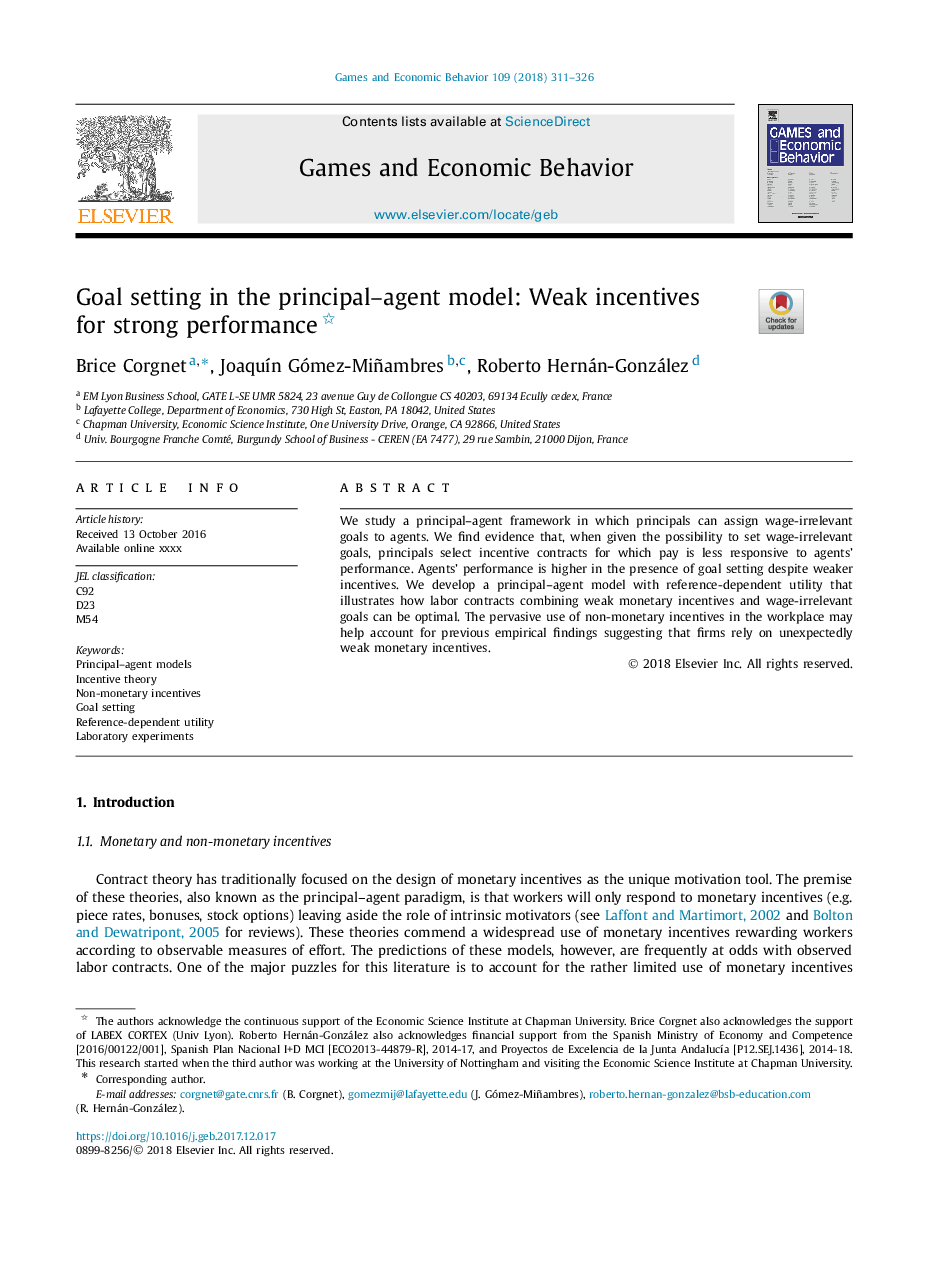| Article ID | Journal | Published Year | Pages | File Type |
|---|---|---|---|---|
| 7352898 | Games and Economic Behavior | 2018 | 16 Pages |
Abstract
We study a principal-agent framework in which principals can assign wage-irrelevant goals to agents. We find evidence that, when given the possibility to set wage-irrelevant goals, principals select incentive contracts for which pay is less responsive to agents' performance. Agents' performance is higher in the presence of goal setting despite weaker incentives. We develop a principal-agent model with reference-dependent utility that illustrates how labor contracts combining weak monetary incentives and wage-irrelevant goals can be optimal. The pervasive use of non-monetary incentives in the workplace may help account for previous empirical findings suggesting that firms rely on unexpectedly weak monetary incentives.
Related Topics
Social Sciences and Humanities
Economics, Econometrics and Finance
Economics and Econometrics
Authors
Brice Corgnet, JoaquÃn Gómez-Miñambres, Roberto Hernán-González,
